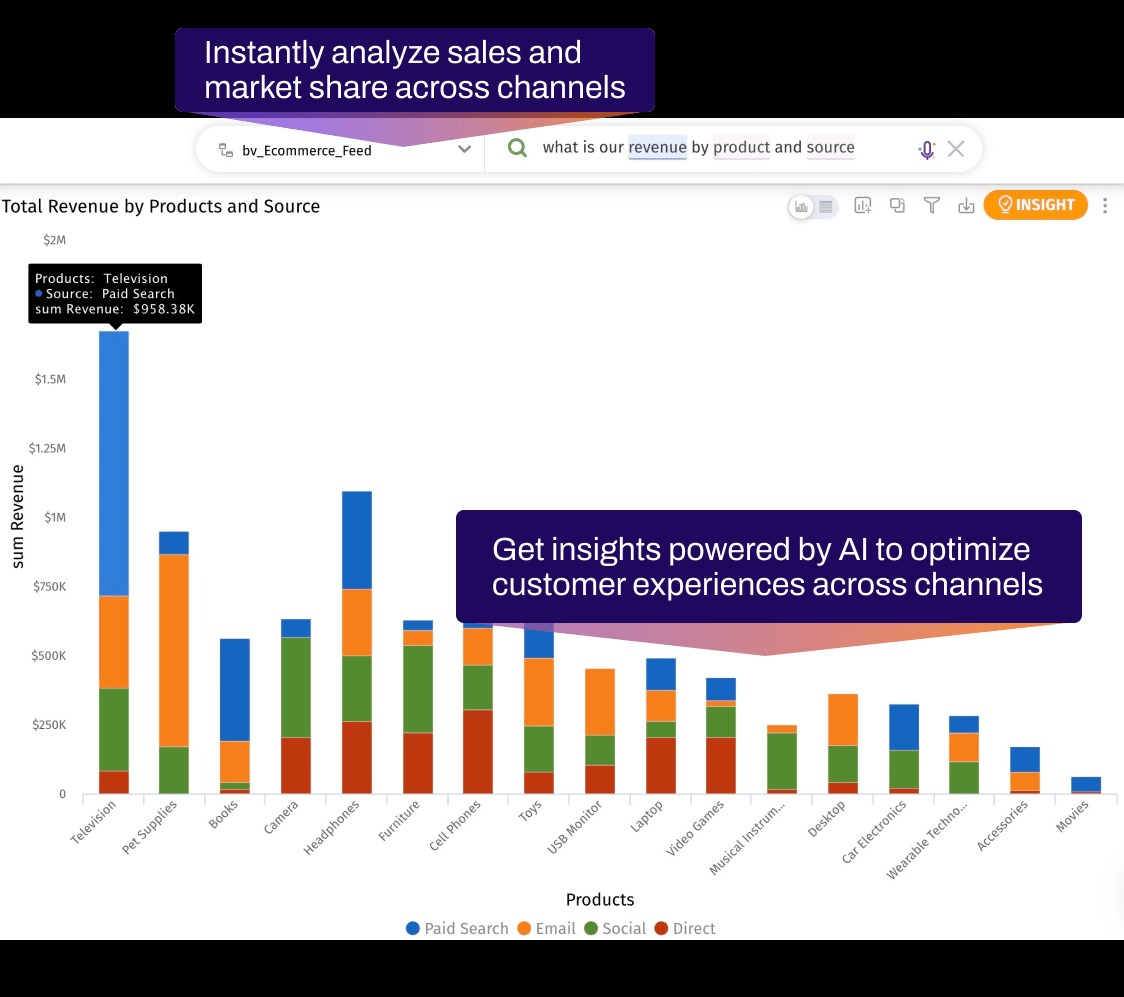Revolutionizing Business Insights with Search-Based Analytics

In the age of big data, businesses are constantly seeking ways to derive actionable insights from the massive amounts of information they collect. Traditional data analytics tools often require users to have technical expertise, but search-based analytics is changing the game by providing a more intuitive and user-friendly approach to data analysis. By enabling users to query and interact with data through simple search interfaces, this powerful tool is democratizing access to critical insights and helping businesses make better, data-driven decisions.
Let’s dive into what search-based analytics is, how it works, and why it’s becoming a crucial tool for businesses across industries.
What is Search-Based Analytics?
Search-based analytics refers to the use of search engine-like queries to retrieve, analyze, and visualize data. Instead of relying on traditional methods of navigating complex dashboards or writing advanced SQL queries, search-based analytics allows users to simply input natural language search queries (similar to how they would use a search engine) to explore data and generate insights.
These tools use powerful indexing and natural language processing (NLP) algorithms to interpret the user's query and return relevant data insights. Whether you're looking for trends, specific data points, or correlations, search-based analytics tools allow anyone within an organization to interact with the data—no technical skills required.
Why Search-Based Analytics is a Game Changer
1. Simplicity and Ease of Use
One of the most significant advantages of search-based analytics is its simplicity. Traditional data analysis platforms often require users to have expertise in using complex tools or writing detailed queries. Search-based analytics eliminates this barrier, allowing even non-technical users to interact with data.
For example, a marketing manager can simply type “Show me the sales performance of our products in the last quarter” into a search bar and instantly receive a visual report of sales trends. This user-friendly approach empowers employees across departments—whether in marketing, finance, or operations—to access and analyze data without waiting for data teams or IT support.
2. Increased Productivity and Efficiency
By making data analysis more accessible, search-based analytics increases productivity across an organization. Employees can get the information they need quickly without having to wait for someone from the data team to create custom reports or dashboards. The speed and ease with which users can query data and obtain insights drastically reduces the time it takes to make data-driven decisions.
For instance, a product manager can instantly search for information on customer feedback, sales figures, and competitor performance, all in one place. This time-saving ability enables faster decision-making, ultimately leading to more agile business operations.
3. Democratization of Data Access
In many organizations, data analysis is typically the domain of specialized teams, such as data scientists or business analysts. However, search-based analytics enables data democratization by giving everyone in the organization—regardless of their technical background—access to data insights.
With a simple search interface, employees can explore data, gain insights, and make informed decisions without relying on IT or data experts. This shift towards democratizing data empowers employees to take ownership of their roles and contributes to a more data-driven culture across the business.
4. Real-Time Data Exploration
In today’s fast-paced business world, the ability to access real-time data is essential for staying competitive. Search-based analytics tools provide the ability to query and explore data in real time. This means that employees can get up-to-date information whenever they need it, without waiting for reports to be generated or updated manually.
For example, if a sales executive wants to see the most recent performance metrics for a particular product, they can simply type a search query, such as “How are our best-selling products performing this week?” and get real-time data on sales, revenue, and customer sentiment. This instant access to data helps teams stay ahead of trends and respond more effectively to market changes.
5. Enhanced Decision-Making with Data Insights
With the ability to search through large datasets and retrieve relevant information instantly, decision-makers can base their choices on real-time insights. Search-based analytics allows businesses to uncover trends, patterns, and correlations that might not be immediately apparent, leading to better, data-informed decisions.
For example, a retail manager can search for purchasing behavior patterns and correlations between product sales and marketing campaigns. They may uncover new insights that help them optimize pricing strategies or adjust inventory levels for higher demand.
Key Features of Search-Based Analytics Tools
For businesses to get the most out of search-based analytics, it’s important to choose the right tool. Some key features to look for include:
- Natural Language Processing (NLP): The tool should be able to understand and interpret natural language queries, allowing users to search in everyday language (e.g., "What were the total sales last month?").
- Comprehensive Data Indexing: The tool should be able to index large and diverse data sets, including structured and unstructured data, to provide meaningful search results.
- Customizable Dashboards and Reports: Search-based analytics tools should allow users to generate customized reports and visualizations based on their search queries.
- Integration with Multiple Data Sources: The tool should support data integration from multiple sources, such as databases, spreadsheets, cloud platforms, and other business applications.
- User-Friendly Interface: The tool should have an intuitive interface that makes it easy for non-technical users to interact with the system and retrieve insights.
Real-World Applications of Search-Based Analytics
Search-based analytics is transforming a variety of industries, from e-commerce to healthcare and finance. Here are a few examples of how businesses are leveraging this tool:
- E-commerce: Online retailers use search-based analytics to monitor product performance, track customer behavior, and optimize inventory management. They can search for patterns in customer buying behavior and adjust marketing strategies or product recommendations accordingly.
- Healthcare: Healthcare organizations use search-based analytics to explore patient data, track disease outbreaks, and monitor treatment outcomes. Doctors and healthcare providers can quickly access data on patient history, medications, and outcomes to make informed decisions about treatment plans.
- Finance: Financial institutions use search-based analytics to assess market trends, monitor investment portfolios, and detect fraud. Analysts can search for correlations between financial indicators and make timely recommendations to investors.
Conclusion
Search-based analytics is revolutionizing the way businesses interact with data. By providing a simple, intuitive, and efficient way for non-technical users to explore and analyze data, this tool is democratizing access to business intelligence and enabling faster, more informed decision-making. As organizations continue to embrace data-driven strategies, search-based analytics will be at the forefront of helping businesses unlock valuable insights and stay competitive in a fast-changing marketplace.
By empowering employees to explore data on their own, organizations can foster a culture of innovation, agility, and data-driven success.
Note: IndiBlogHub features both user-submitted and editorial content. We do not verify third-party contributions. Read our Disclaimer and Privacy Policyfor details.







